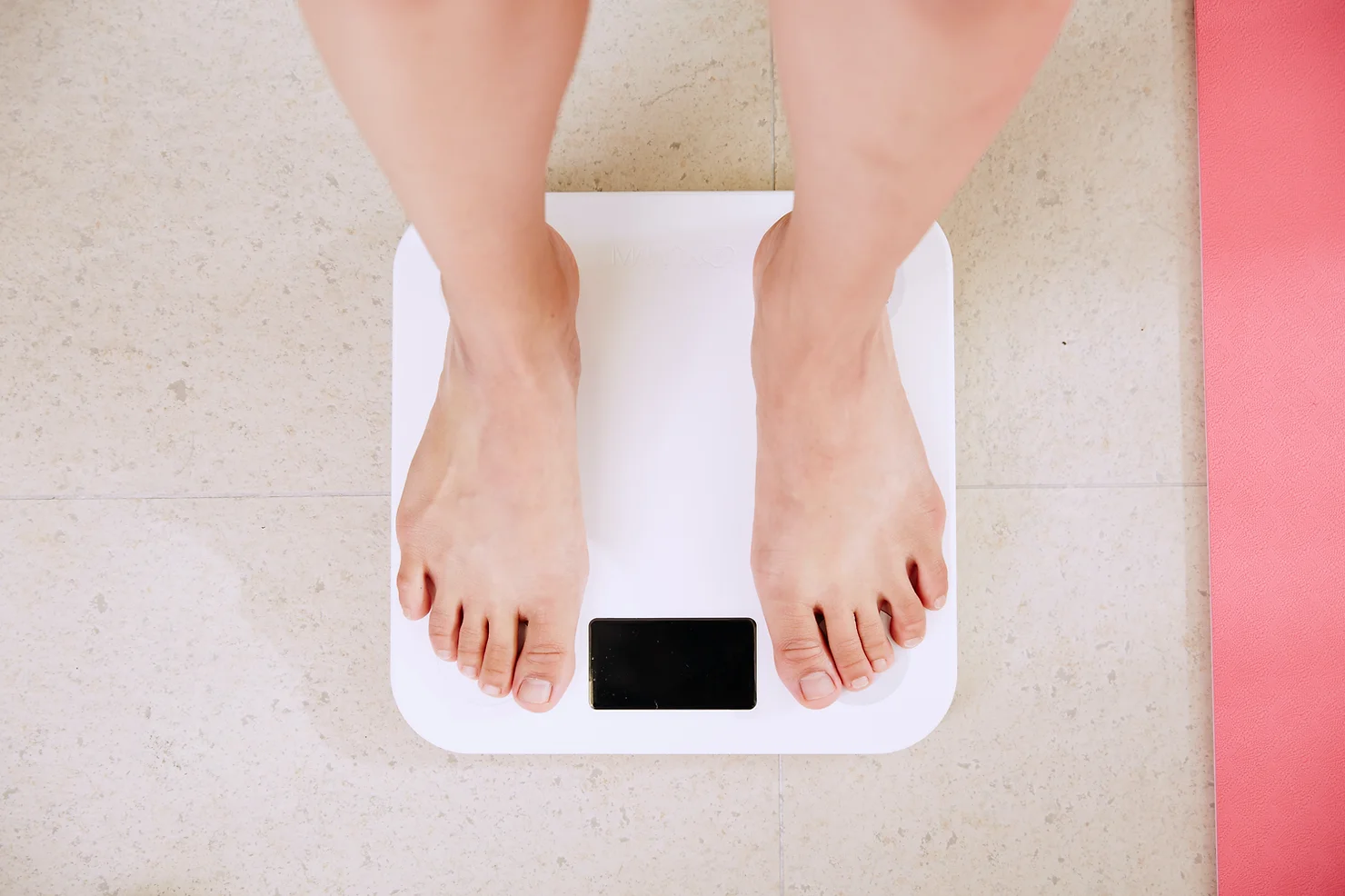In this 5-Part Series we’re going to jump into different aspects of Diet Culture.
In this article we’re going to dive in and answer questions like:
- What is “diet culture?”
- Who does it impact?
- Is it harmful?
- Am I impacted if I don’t diet? (I guess the article title is a spoiler!)
In future articles we’ll jump into more depth about the various weight loss approaches from “The (insert diet name here) Diet” to Points Systems and Apps to Intuitive Eating. We will talk about the pros and cons of each approach and give you insight to assist you in shifting your perspective so that you feel more confident and informed.
Truth Talk: that mental shift takes time, and often coaching, because it’s challenging to undo a lifetime of diet culture messaging. However, that’s why you’re here! Our desire is that you can be free from the guilt and shame around food and your body and, instead, take the reins to focus on real health. Here’s another spoiler: weight doesn’t necessarily have as much to do with overall health as you’ve been told!
Welcome to Diet Culture 101!
What is Diet Culture?
Diet Culture is the belief that our physical appearance, primarily weight, body size and shape, are the most important factors to determining health, happiness, morality or status.
Things Diet Culture Assumes:
- Labels foods as “good” or “bad” for you
- Prioritizes restrictive eating habits such as restricting food groups (such as carbs, fat, meat, dairy, sugar) or eliminating specific foods or food groups.
- Values thinness or assumes weight loss equates to good health, attractiveness or moral superiority
- Foods labeled as “bad” or “treats” have to be earned with good behavior or exercise
- Those who are in bodies not labeled as “thin” are inherently unhealthy
Who Does it Impact and how is it harmful?
Diet culture is so pervasive, it arguably impacts anyone and everyone in western culture because even without intentionally seeking out dieting, our access to media and its messaging is hitting anyone’s eyes and ears. Messages can come from all around including:
- Books
- Billboards and Marketing Signage
- News Media
- Social Media including food bloggers, influencers, etc.
- Entertainment Industry
- Magazines including health, cooking, exercise, etc.
- Healthcare Professionals including Doctors, Nurses, Dieticians, Weight Loss Clinics, etc.
We are constantly hearing about the newest fad diet, diet pill, weight loss program, celebrity stories of their weight loss, training or preparation for roles involving body composition change, tips and tricks from bloggers and influencers, messaging from authors of the latest book, and, yes, even your doctor’s language.
Due to this level of exposure, you can’t help but subconsciously internalize much of this messaging even if you aren’t seeking dieting. You likely at one point or another have self-judged your body shape or size whether positively or negatively, had thoughts around judgment of food choices of yourself or others, or made assumptions about a person based on the shape or size of their body. This is due to being conditioned via internalizing information from outside sources to believe these things to be true, accurate or acceptable.
Healthcare providers are trained via the latest research regarding obesity, cardiovascular disease, type 2 diabetes, etc. and how that impacts public health. The common denominator with much of this training is evaluating “obesity” and what we call comorbidities, in other words, diseases associated with obesity. What this doesn’t always take into account is genetic factors such as ethnic or family history that impacts body shape and size leading to a snap judgment that the person in the larger body is automatically unhealthy.
It is understandable that many people who are in body sizes other than what is perceived as “thin” may have health risks. We have to remember that most Providers are trying to help you. They got into their profession because they care and wanted to help people. Research does support that risks do exist and we see this time and time again, but there are 3 major problems with the automatic assumption that larger bodies lack healthy behaviors or habits:
1. It isn’t always accurate.
I once met a nutritionist who was in a larger body. Almost undoubtedly she would have been categorized as “obese.” I remember how frustrated she was because clients didn’t want to work with her because of her weight, assuming she couldn’t help them. She was in a genetically larger body. Her entire family had the same history. However, she worked out regularly, had a very “clean” diet and had no abnormal lab results. She was a very healthy individual! She was always met with the same weight stigma at the doctor’s office as well. Every annual checkup was focused on her weight.
“Obesity” is based on a chart that uses a mathematical formula to determine Body Mass Index (BMI) using weight and height. The result of this calculation determines where you fall on the scale ranging from underweight to obese. Many organizations are calling for the end of the use of BMI calculations as they do not take into account things such as muscle mass and bone density among other things. A recent statement published in research from Nature Medicine stated that current diagnostic criteria for “obesity,” mainly BMI, is inadequate to accurately diagnose it.
Remember that science is always evolving. We learned about the scientific method in school as children. The truth of the matter is as technology and study continues to evolve, so does our understanding of the human body and how it functions. The newer science is very critical of the “old” way of evaluating this issue, but it’s like trying to turn the Titanic when it comes to having new research hit your Provider’s office. It takes time.
2. Patients avoid the doctor for fear of judgment.
Up to a quarter of “obese” adults experience weight discrimination.1 See story from the point above, right? Imagine how this approach would impact your relationship with your healthcare provider if you’re always being told you need to lose weight and your weight is being blamed for every potential ailment you would like addressed. If your passion is to help people with their health and nutrition and your potential clients assume your body size means you can’t help them.
Weight discrimination can come in many forms: from equipment in offices that don’t accommodate various body sizes to direct language related to perceived excess weight. Weight discrimination comes with significant risks and potentially worsening health outcomes in stigmatized individuals.
3. Patients report that doctors don’t listen to their health concerns and instead launch into their weight.
There are many stories out there of missed diagnoses due to focusing on weight in individuals. Patients report that following their complaints, the conversation often goes back to weight and no actual follow up, such as labs, are done to investigate further. This has led to misdiagnosis of conditions from minor things to sources of pain all the way to cancer diagnoses that were missed. This doesn’t adequately serve the patient or supports their optimal health, including their mental health, when they are not heard.
What Now?
The absolute most important thing that almost no one says out loud: We need to remember that weight isn’t the actual problem.
Should I say it louder for the people in the back?
WEIGHT ISN’T THE PROBLEM.
You’re probably thinking, “So…what is the problem then?”
Let us frame it for you this way: We are weight-neutral nutrition practice. It isn’t because we think people can’t lose weight or that we don’t help people do that, it’s because we recognize that weight is a symptom and not the main problem. It could be a symptom of a number of different metabolic or hormone issues or lack of what we call “nutrition proficiency” that we can assist with, but those things CAUSE weight gain, therefore making it a symptom and not the root problem. It can also be a result of genetics, medication side effects, and/or health conditions among other things. Addressing some of these issues and then supporting or correcting them (where possible) can result in the symptom of excess weight starting to resolve.
Not only that, food, and even exercise, aren’t the only determinants of health. We teach our clients the 5 Pillars of Health and offer support in each one and more in a way that helps them with life-long change without dieting or giving up their favorite foods.
All that to say: shame, guilt and weight judgment have no place in our support model.
Steps You Can Take Today to Start Overcoming Diet Culture
- Get a weight-neutral Nutritionist to support your journey (whether with us or someone else).
- Remove media or other exposure that causes diet culture triggers.
- Stop labeling foods as “good” or “bad.”
- Focus on what your body does well and not what it looks like.
You can have lifelong healthy habits, but weight isn’t the center of that and Diet Culture is causing loads of harm. If you want to learn more about overcoming this and addressing the true measures of health, set up a complimentary discovery call and learn what working with us looks like. Know that we are here anytime you need us and, to start, all you have to do is set up a complimentary discovery call with one of our team members.
Join the Hope Wellness newsletter to be the first to get access to more future articles and to hear more about a new group program focused on reversing diet culture mentality damage and transforming your relationship to food. We’ll be launching the program in the new year. Stay tuned!





